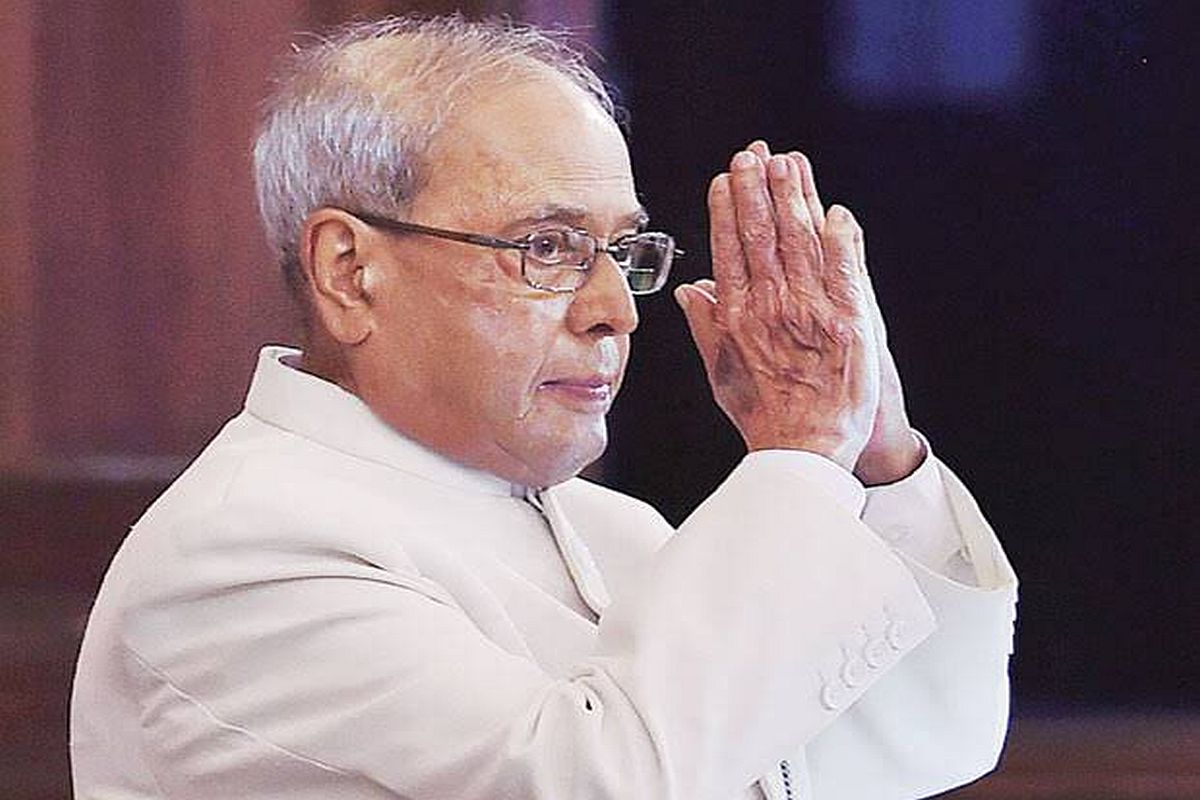J&K Congress leaders pay rich tribute to Indira Gandhi on her birth anniversary
The main function, attended by senior Congress leaders, was held in Jammu under the leadership of PCC President Tariq Hameed Karra.
As a senior member of the Congress party, he was trusted by his colleagues to present cogent analyses of political issues and chart a course that others could follow, including the drafting of party manifestos

(Photo: Twitter/@Sharmistha_GK)
While it is customary to term the death of a former Head of State as an irreparable loss, the departure from the scene of Pranab Mukherjee, India’s 13th President, truly merits the phrase.
For in a political career spanning more than half a century, Mukherjee essayed the roles of, first, a politician, and then a statesman with consummate skill. As long as he was part of the governments of Indira Gandhi, P V Narasimha Rao and Manmohan Singh, he was the quintessential politician, armed with all the skills required to negotiate the tortuous by-lanes of governance including the ability to read people and situations; draw upon his immense intellectual skills to find solutions to problems; deal effectively with the myriad favour seekers who court those in power and marshal facts effectively to defend the positions he took.
As a senior member of the Congress party, he was trusted by his colleagues to present cogent analyses of political issues and chart a course that others could follow, including the drafting of party manifestos. He stumbled politically just once, immediately after the assassination of Indira Gandhi in 1984 and spent a few years in the wilderness for the perceived offence of being ambitious, even though he was entitled to believe he was best qualified to succeed his mentor.
Advertisement
Under Narasimha Rao, he regained his place in party and government and did not look back. While he ought to have been the first choice for Prime Minister in 2004, if only for the immense experience and knowledge he would have brought to the job, his shrewd reading of political situations would not have allowed him to nurture the hope.
Thus, when he was nominated by the Congress for President in 2012, he would have accepted the honour with the knowledge that he would bring the necessary gravitas to it.
In the event, he discarded his political robes when he stepped into Rashtrapati Bhavan and emerged as the statesman he was to leave an indelible mark as. The reasons for this metamorphosis are not hard to find.
Mr Mukherjee had a deep understanding of the Constitution and understood as well if not better than any of his predecessors the nuances of the President’s role as prescribed by the supreme law of the land. His conduct as Head of State, as Supreme Commander of the Armed Forces and as the conscience-keeper of the nation was exemplary. At every stage, he behaved with propriety.
Most important, he was able to keep to the side his own deep-rooted ideological convictions and his background as a Congressman to become a true First Citizen. It is no wonder then that after having worked for two years with Prime Minister Manmohan Singh, he developed an easy and cordial relationship with his successor. Mr Mukherjee was an exceptional President and just for that, he deserved the Bharat Ratna a grateful nation bestowed on him. He will be missed by many.
Advertisement